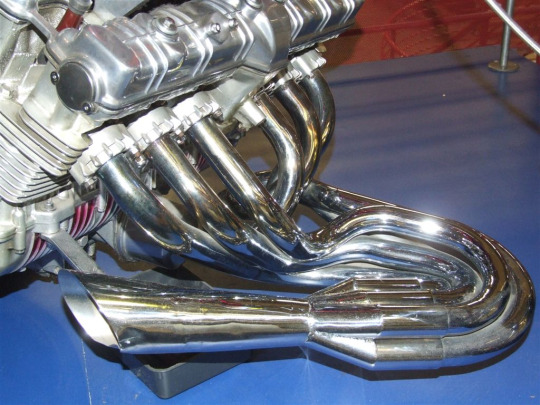Exhaust systems are pretty long-lasting nowadays. A generation ago, exhaust pipes and mufflers were made of inexpensive aluminum-coated steel. After a few years they would rust out, leaving you with a loud exhaust and the danger of carbon monoxide poisoning. Ultimately, these car exhaust systems would rust out from the inside, for the most part.
How Your Car Exhaust System Works:
- When a car is started first thing in the morning, the exhaust system is stone cold, and there’s a lot of water vapor in the exhaust coming out of the engine; it’s actually water and carbon dioxide, the end product of burning gasoline. That water condenses inside the muffler and in low spots inside the pipes. (You can see the liquid dripping out of the pipes on idling cars, in fact.) This water combines with partially burned hydrocarbons and carbon dioxide to form a corrosive, acidic fluid that rots out the steel.
- This kind of corrosion is a larger problem in cars that are used for short trips, because when the exhaust system is fully warmed-up, the water simply boils off, leaving the pipes and muffler dry. That doesn’t mean you should prematurely wear out your engine and waste gasoline by warming up your vehicle in the drive just to preheat the exhaust. Just try to make one trip to take care of your errands for the day, instead of letting the car cool off in between. (Doing this also saves gas, because a warmed-up engine uses less fuel than a cold one).
In today’s era of catalytic converters, corrosion is a much smaller issue. The catalytic converter generates a tremendous amount of heat as it burns off pollution, which raises the temperature of the exhaust gases and the exhaust system above the boiling point very rapidly. In fact, to combat the tremendous heat, most car exhaust systems are now made of highly corrosion-resistant stainless steel. Some vehicles do use less expensive steel downstream of the catalytic converter, but it’s hardly the cheap stuff our parents suffered through.
Nonetheless, there are ways to damage a modern, corrosion-resistant exhaust system. Here are a few examples of car exhaust system failure:
- Driving the vehicle when the check engine light is flashing is the fastest way. When that light comes on normally, it means the engine’s computer is getting data from one or more of its dozens of sensors that are outside the sensor’s normal range, in which case you should take it to a mechanic at your earliest convenience.
- When that light comes on and flashes constantly, it’s far more serious. Even a few miles of normal driving with that light flashing can overheat the catalytic converter, converting its precious-metal honeycomb catalyst bed into molten slag. This will require not only fixing the misfire condition that made the light turn on, but require replacement of as many as four (expensive) catalytic converters and four more oxygen sensors. That’s a substantial part of the entire exhaust system. The extreme heat may also warp or crack the pipes between the cats and the engine, requiring further surgery.
- The second most common cause of exhaust-system failure is simple mechanical damage. As you drive the mean streets of America, potholes and road debris can simply smash the pipes flat or make the flexible hangers fail. If you off-road your vehicle (intentionally or not) you stand a much greater chance of hanging the car exhaust system up on a rock or branch.
It’s always a good idea to patronize a full-service repair shop for routine maintenance. A mechanic who knows your vehicle will be more than happy to give it a full undercarriage inspection when it’s up on the lift for service, alerting you of things like failed exhaust pipe hangers, broken clamps or dented pipes before they fail catastrophically.
Extend the Life of Your Car Exhaust System
- Don’t drive it while your check-engine light is flashing.
- Try to daisy-chain your errands together, so the car stays warm.
- Avoid driving over potholes and debris. If you take your vehicle off road, regularly request an undercarriage inspection.
– Mike Allen is a guest writer for the Openbay blog. He’s an ASE-certified mechanic, longtime former editor of Popular Mechanics, and world-record-holding race-car driver.
Whether you need to get your car repaired immediately, or want to book regular maintenance, do it with Openbay. Openbay gives you auto-repair quotes from local mechanics, and you select and book with one based on its location, ratings and reviews and price. Openbay is car repair for today’s world.

